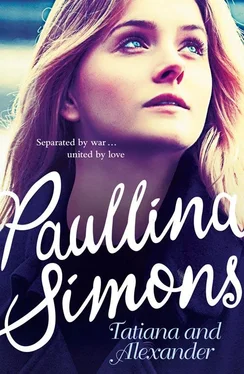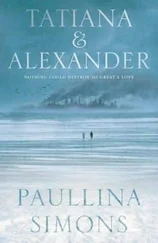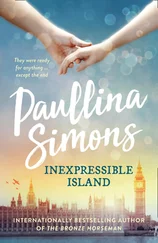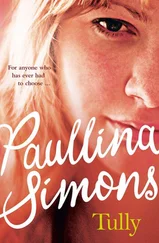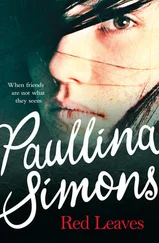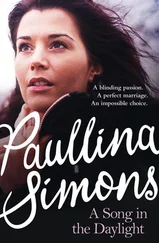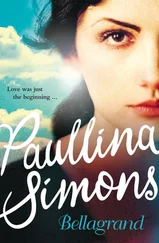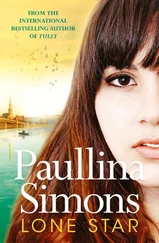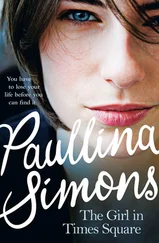“Twenty-three,” replied the guard.
“Funny—me too,” said Alexander. “Just think, three days ago I was a major in the Red Army. Three days ago I had a Hero of the Soviet Union medal pinned to my chest. Amazing, isn’t it?”
The guard’s hands continued to shake as he lifted the blindfold to Alexander’s face. Alexander backed away and shook his head. “Forget it. And I’m not turning around, either.”
“I’m just following orders, Major,” said the young guard, and Alexander suddenly recognized him as one of the corporals who had been in the emplacement with him three months ago at the storming of the Neva to break the Leningrad blockade. He was the corporal Alexander had left on the anti-aircraft gun as he ran out to help Anatoly Marazov.
“Corporal … Ivanov?” Alexander said. “Well, well. I hope you do a better job shooting me than you did blowing up those fucking Luftwaffe planes that nearly killed us.”
The corporal wouldn’t even look at Alexander. “You’re going to have to look at me when you aim, Corporal,” Alexander said, standing tall and straight. “Otherwise you will miss.”
Ivanov went to stand by the other guard. “Please turn away, Major,” he said.
“No,” Alexander said, his hands at his sides, and his eyes on the two men with rifles. “Here I am. What are you afraid of? As you can see I’m nearly naked and I’m unarmed.”
He pulled himself up taller. The two guards were paralyzed. “Comrades,” said Alexander. “I will not be the one to issue you an order to lift your rifles. You’re going to have to do that on your own.”
The other corporal said, “All right, lift your rifle, Ivanov.”
They lifted their rifles. Alexander looked into the barrel of one of the guns. He blinked. O God, please look after Tania all alone in the world.
“On three,” said the corporal, as the two men cocked their rifles.
“One—”
“Two—”
Alexander looked into their faces. They were both so afraid. He looked into his own heart. He was cold, and he felt that he had unfinished business on this earth, business that couldn’t wait an eternity. Instead of seeing the trembling corporals, Alexander saw his eleven-year-old face in the mirror of his room in Boston the day he was leaving America. What kind of man have I become? he thought. Have I become the man my father wanted me to be? His mouth tightened. He didn’t know. But he knew that he had become the man he himself wanted to be. That would have to be good enough at a time like this, he thought, squaring his shoulders. He was ready for “three.”
But “three” did not come.
“Wait!” He heard a voice shout from the side. The guards put down their rifles. Slonko, dressed in a warm coat, felt hat and leather gloves, walked briskly to Alexander. “Stand down, Corporals.” Slonko threw a coat he was carrying onto Alexander’s back. “Major Belov, you’re a lucky man. General Mekhlis himself has issued a pardon on your behalf.” He put his hand on Alexander. Why did that make Alexander shudder?
“Come. Let’s go back. You need to get dressed. You’ll freeze in this weather.”
Alexander studied Slonko coldly. He had once read about Fyodor Dostoyevsky’s similar experience with Alexander II’s guards who were ready to execute him. Dostoyevsky was spared at the last minute with a show of mercy from the emperor and exiled instead. That experience of looking death in the face and then being shown mercy transformed Dostoyevsky. Alexander, on the other hand, did not have time to look so deep into his soul as to be changed even for five minutes. He thought it wasn’t mercy they were showing him but a ruse. He was calm before, and he remained calm now except for an occasional shiver from his skin to his bones. Also, unlike Dostoyevsky, he had stared death in the face too often in the last six years to have been daunted by it now.
Alexander followed Slonko back to the school building with the two corporals bringing up the rear. In a small, warm room he found his clothes and his boots and food on a table. Alexander got dressed, his body shaking. He put his feet into his socks, which had been—surprisingly—laundered, and rubbed his feet for a long time to get the blood flowing again. He saw some black spots on his toes and momentarily worried about frostbite, infection, amputation; but only momentarily because the wound in his back was on fire. Corporal Ivanov came and offered him a glass of vodka to warm his insides. Alexander drank the vodka and asked for some hot tea.
Having slowly eaten his food in the warm room and drunk his tea, Alexander felt full and sleepy. Not just sleepy, close to unconsciousness. The black spots on his feet became fainter and grayer. He closed his eyes for a moment and when he opened them again, Slonko sat in front of him. “Your life has been saved by General Mekhlis himself,” Slonko said. “He wanted to show we are not unreasonable and that we believe in mercy.”
Alexander made no move even to nod. It required all he had to stay awake.
“How do you feel, Major Belov?” asked Slonko, getting out a bottle of vodka and two glasses. “Come, we’re both reasonable men. Let’s have a drink. We have no differences.”
Alexander acknowledged Slonko by shaking his head. “I ate, and I had my tea,” he said. “I feel as good as I possibly can.” He couldn’t keep himself upright.
“I want to talk to you for a few minutes.”
“You seem to want a lie from me, and I cannot give it to you. No matter how cold you make me.” He pretended to blink. Really he was just closing his eyes.
“Major, we spared your life.”
With great effort, Alexander opened them again. “Yes, but why? Did you spare it because you believed in my innocence?”
Slonko shrugged. “Look, it’s so simple.” He pushed a piece of paper in front of Alexander. “All you need to do is sign this document in front of you that says you understand your life has been spared. You will be sent to exile in Siberia, and you will live out your days in peace and away from the war. Would you like that?”
“I don’t know,” said Alexander. “But I’m not signing anything.”
“You have to sign, Major. You are our prisoner. You have to do as you’re told.”
“I have nothing to add to what I already told you.”
“Don’t add, just sign.”
“I’m not putting my name on anything.”
“And exactly what would your name be?” Slonko said suddenly. “Do you even know?”
“Very well,” said Alexander, his head bobbing forward.
“I can’t believe you’re making me drink by myself, Major. I find it almost rude.”
“Maybe you shouldn’t drink, Comrade Slonko. It’s so easy to fall into the abyss.”
Slonko lifted his eyes from the vodka and stared at Alexander for what seemed to be minutes. Finally he said slowly, “You know, a long time ago, I knew a woman, a very beautiful woman who used to drink.”
No reply was required of Alexander, so he made none.
“Yes. She was something. She was very brave and suffered terribly not to have a drink in prison. When we picked her up for questioning, she was drunk. It took her several days to get sober. When she became sober, we talked for a long time. I offered her a drink, and she took it, and I offered her a piece of paper to sign and she signed it gratefully. She wanted only one thing from me—do you know what it was?”
Alexander managed to shake his head. That’s where he heard the name Slonko!
“To spare her son. That was the only thing she asked. To spare her only son—Alexander Barrington.”
“That was good of her,” said Alexander. He clenched his hands together to still them. He willed his body to remain still. He wanted to be like the chair, like the desk, like the blackboard. He didn’t want to be like the glass rattling in the March wind. Any minute now the glass was going to pop out of the frame. Like the stained glass in a church in Lazarevo.
Читать дальше
